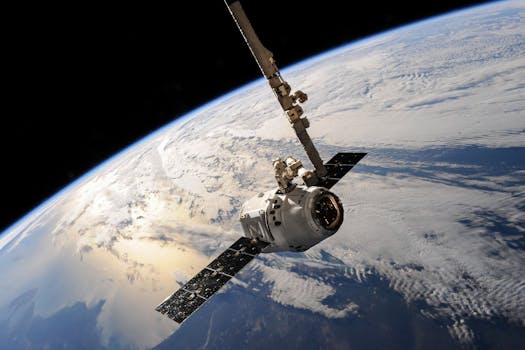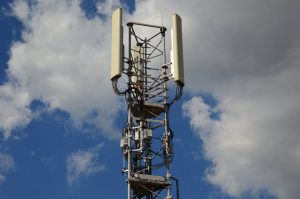The Future of Satellites: Revolutionizing Global Connectivity
The future of satellites is poised to revolutionize global connectivity, enabling faster and more reliable communication services. With advancements in space technology, satellites are becoming increasingly important for a wide range of applications, from navigation and communication to weather forecasting and Earth observation.

The Future of Satellites: Revolutionizing Global Connectivity
The future of satellites is an exciting and rapidly evolving field, with new technologies and innovations emerging all the time. As we look to the future, it is clear that satellites will play an increasingly important role in shaping our world and enabling global connectivity. From providing high-speed internet access to remote and underserved communities, to supporting critical infrastructure such as navigation and communication systems, satellites are becoming an essential part of modern life.
Introduction to Satellites and their Applications
Satellites have been a crucial part of our technological infrastructure for decades, providing a wide range of services and applications that are essential to modern society. From the early days of satellite communications, when the first satellite, Sputnik, was launched in 1957, to the present day, satellites have been used for a variety of purposes, including navigation, communication, weather forecasting, and Earth observation. Today, there are thousands of satellites in orbit around the Earth, providing a vast array of services and applications that are used by people all over the world.
One of the most significant applications of satellites is in the field of communication. Satellites are used to provide high-speed internet access, as well as to support critical infrastructure such as telephone networks and television broadcasting. They are also used to provide navigation services, such as GPS, which is used by millions of people all over the world to navigate their way around. In addition to these applications, satellites are also used for weather forecasting, Earth observation, and a variety of other purposes.
Advancements in Space Technology
In recent years, there have been significant advancements in space technology, which have enabled the development of more sophisticated and capable satellites. One of the most important advancements has been the development of new propulsion systems, which have enabled satellites to be launched into orbit more efficiently and at lower cost. Another significant advancement has been the development of new materials and technologies, which have enabled the creation of smaller, lighter, and more powerful satellites.
These advancements have enabled the development of a new generation of satellites, which are smaller, more efficient, and more capable than their predecessors. These satellites, known as smallsats, are being used for a wide range of applications, from communication and navigation to Earth observation and weather forecasting. They are also being used to support the development of new technologies, such as the Internet of Things (IoT), which is expected to revolutionize the way we live and work.
The Future of Satellites
As we look to the future, it is clear that satellites will play an increasingly important role in shaping our world and enabling global connectivity. With the continued advancement of space technology, we can expect to see even more sophisticated and capable satellites, which will enable new and innovative applications and services. One of the most exciting areas of development is in the field of satellite constellations, which involve the launch of large numbers of small satellites into orbit around the Earth.
These constellations, which are being developed by companies such as SpaceX and OneWeb, will provide global coverage and enable a wide range of applications, from communication and navigation to Earth observation and weather forecasting. They will also enable the development of new technologies, such as the IoT, and will support the creation of new industries and jobs. As the future of satellites continues to evolve, it is clear that they will play an increasingly important role in shaping our world and enabling global connectivity.
Conclusion
In conclusion, the future of satellites is an exciting and rapidly evolving field, with new technologies and innovations emerging all the time. As we look to the future, it is clear that satellites will play an increasingly important role in shaping our world and enabling global connectivity. From providing high-speed internet access to remote and underserved communities, to supporting critical infrastructure such as navigation and communication systems, satellites are becoming an essential part of modern life.
As the technology continues to advance, we can expect to see even more sophisticated and capable satellites, which will enable new and innovative applications and services. Whether it is through the development of satellite constellations, the advancement of space technology, or the creation of new industries and jobs, the future of satellites is bright and full of possibilities. As we continue to explore and develop this technology, it is clear that satellites will play a vital role in shaping our world and enabling global connectivity for generations to come.





